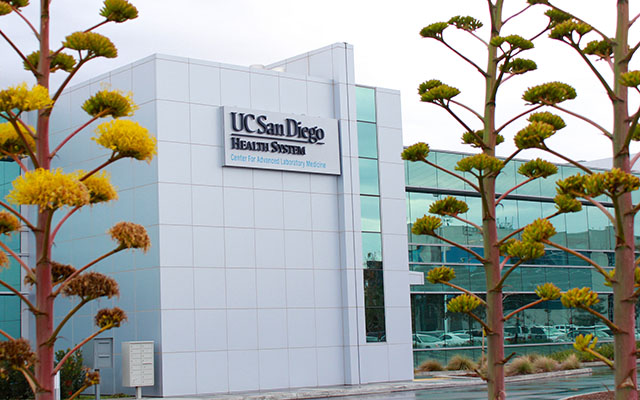Daily Business Report-March 24, 2020
A sign on the door at Parkway Lounge in Oakland. (Photo by Anne Wernikoff for CalMatters)
Goodbye California rainy day fund
With coronavirus, state’s economy is in uncharted territory
CalMatters
Coronavirus is almost certainly causing the first pandemic-induced recession in modern times. It’s still unclear just how big of a hit it will have on the economy, but experts say possibilities range from “very bad” to “very, very bad,” CalMatters’ Ben Christopher reports.
Jesse Rothstein, UC Berkeley professor of public policy: “It’s so much larger than anything we’ve encountered before. I think this is going to be larger than the Great Recession. I hope it doesn’t last as long, but the magnitude of the shock is bigger.”
It’s also what one economist calls the first “services recession” in world history — meaning that it’s hitting the retail, hospitality, food and travel industries hardest as restaurants, bars and gyms shut down and people shelter in place. The services sector employs 86 percent of American workers, and 20 percent of California jobs are in the tourism, hospitality and retail sectors.
Gov. Gavin Newsom said over 135,000 Californians filed for state unemployment insurance on a single day last week. Typically, that daily figure is less than 6,000.
For more information on who is considered an “essential worker” and allowed to keep going to work, check out CalMatters’ explainer.
To pass a state budget in June, lawmakers will likely have to dip into the state’s $18 billion rainy day fund. They’re also turning to the federal government for help. On Sunday, President Trump declared California to be in a state of “emergency disaster” at Newsom’s request, saying the federal government will ship a number of mobile hospital units to the state, pay for National Guard deployments, and deploy the San Diego-based naval hospital ship Mercy to Los Angeles.
Long term, though, things aren’t looking so good for the state’s fiscal future. As stock prices collapsed, the California Public Employees’ Retirement System, used to fund public employees’ pensions, saw its balance drop by $69 billion from last month. To make up the deficit, local governments and schools will have to pay CalPERS more in coming years, likely forcing them to raise taxes or cut public services.
_____________________________

UC San Diego partners with 5 leading
manufacturers to boost COVID-19 testing
Partnering with five leading in vitro diagnostics manufacturers, an interdisciplinary team of scientists and physicians at UC San Diego Health and University of California San Diego School of Medicine announced that the UC San Diego Center for Advanced Laboratory Medicine (CALM) is significantly ramping up testing for COVID-19, projecting a capacity to complete 1,000 to 1,500 tests per day within two to three weeks.
The partnerships are with Thermo Fisher Scientific, Roche Diagnostics, GenMark Diagnostics, Luminex Corporation and Abbott Diagnostics.
The announced partnerships encompass a broad-based approach using multiple testing platforms with different material requirements and supply chains. They are designed to better overcome the issues of supply, demand — and need.
CALM, which opened in 2011, is a 90,000-square-foot, state-of-the-art facility near the La Jolla campus. It houses the majority of UC San Diego Health’s clinical laboratories, diagnostic services and related research activities. It is licensed and approved for the most advanced and complex types of lab testing.
_____________________________
Scripps scientists seek to identify medicines
that could be repurposed against COVID-19
Scripps Research teams are looking for anti-viral drugs that could be given to people already exposed to the novel coronavirus causing the COVID-19 pandemic. One priority is to test already approved drugs, or drugs with significant safety data in humans available, for activity against the novel coronavirus, known as SARS-CoV-2. These drugs could be made available to treat coronavirus patients on a much quicker timescale than novel therapies.
_____________________________
United Way creates emergency Worker
Assistance Initiative for low-wage workers
United Way of San Diego County has created an emergency Worker Assistance Initiative for low-wage workers needing immediate support for utilities and rent/mortgage payments due to the COVID-19 crisis.
It is estimated nearly 200,000 employees are represented in the hospitality and tourism sector in San Diego County alone, a third of whom are considered to be low-wage workers.
The Worker Assistance Initiative is part of the greater San Diego COVID-19 Community Response Fund launched on March 16 as a partnership among the county of San Diego (led by Supervisor Nathan Fletcher), The San Diego Foundation, San Diego Gas & Electric (SDG&E), the San Diego & Imperial Counties Labor Council, and United Way of San Diego County.
This response fund was established to complement the work of public health officials and to ensure funding for basic needs of food, utility service, and rent/mortgage payments to prevent the need to enter the social services system of care and to prevent increased homelessness due to the COVID-19 pandemic.
“The United Way is ready to receive applications from San Diegans affected by the economic downturn caused by COVID-19,” said Fletcher. United Way of San Diego County will leverage $1 million made available by SDG&E in their existing Neighbor-to-Neighbor program to help pay energy bills for workers in need. The organization also has $250,000 in seed capital from SDG&E and The San Diego Foundation (with plans to initially raise another $750,000+) to help low-wage workers pay their rent/mortgage and utility bills.
Community members, foundations and companies can donate to support low-wage workers. Click here.
United Way is accepting applications for qualified low-wage workers who have experienced job loss or a wage reduction to access funding due to COVIC-19. Click here to apply.




